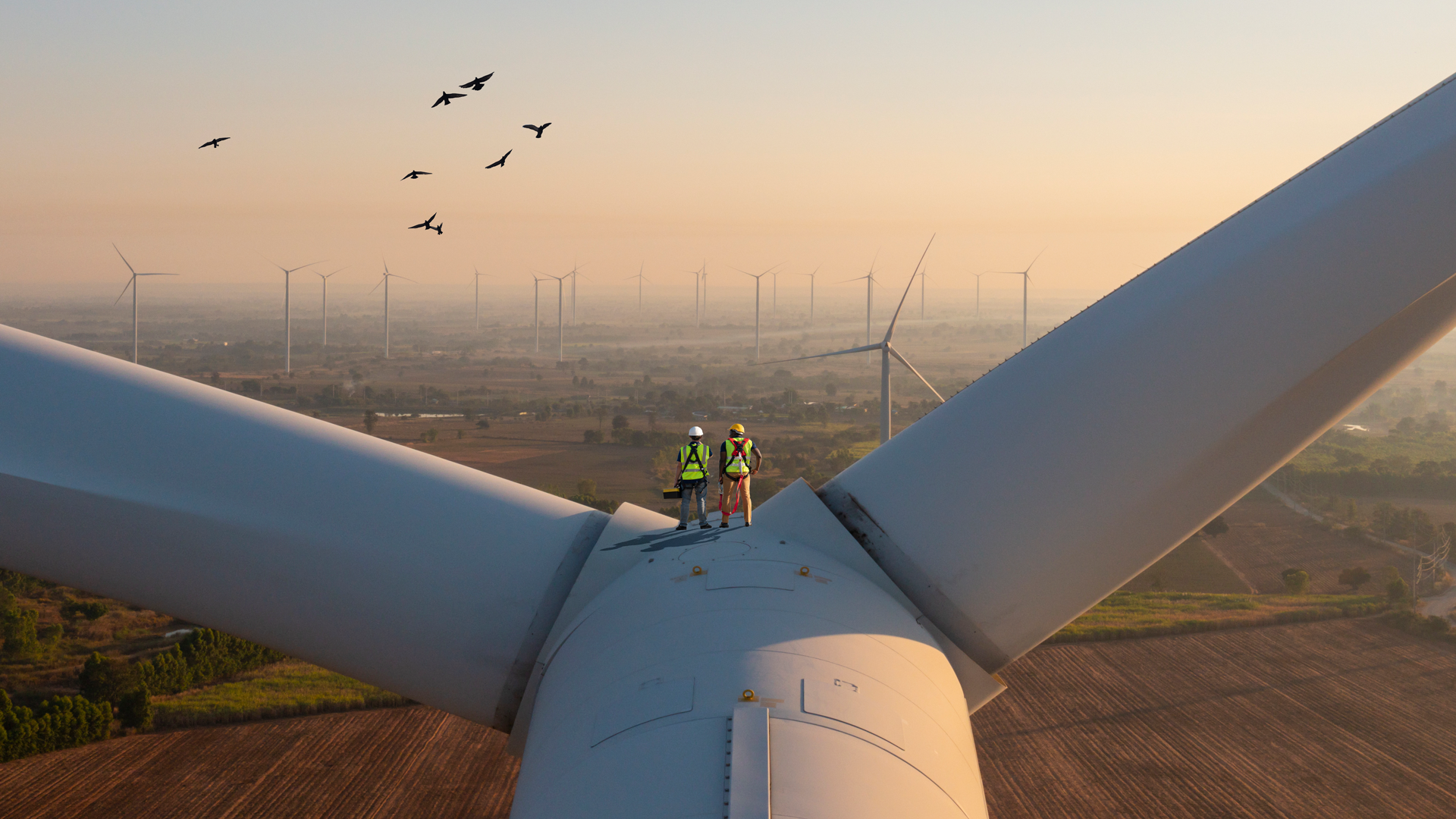
23 Jun Renewable energies set to replace Russian gas by 2028
Despite what conspiracy theorists and armchair pseudoscientists might profess, global warming is very real and we’ve undoubtedly already started to feel its effects. In fact, experts say we’re on course to enter a negative spiral: higher average temperatures on Earth leading to more extreme weather events, leading to more persistent droughts, and so on. That’s why the commitment to renewable energies isn’t just important, it’s a matter of survival. The ways in which we generate and consume energy – alongside our awareness of the importance of sustainability – are crucial for today’s generation and the next.
Renewable energies – our only way out of this mess
Renewable energy sources are ones that are naturally occurring, virtually inexhaustible and don’t use fossil fuels to generate energy. Although not an exhaustive list, we tend to talk about four key sustainable energy sources: water, wind, animal and plant biomass.
The energy transition is the process of gradually replacing all our current energy sources – which mostly depend on oil and gas for extraction or generation – with renewable ones. This will help us achieve a long-awaited goal: the decarbonisation of our planet or, to put it another way, when we stop emitting carbon dioxide, which is the main cause of the greenhouse gases present in the atmosphere.
What are the most encouraging renewable energies?
While we can be sustainable in lots of different ways – such as recycling and reusing materials in what’s known as the Circular Economy –, the most important part of the energy transition is that we shift to renewable energies as quickly as possible. The ones most ready and capable of giving us the biggest leg up out of the global warming quagmire, taking both cost and efficiency into account, are:
- Solar power: although the sun will die out eventually like any other star, it still has a good few billion years of life left in it. Taking advantage of the sun’s rays and caloric energy, storing it and converting it into electricity, for example, is one of the most straightforward ways to become sustainable. Particularly in sunnier parts of the planet that are closer to the equator, where the amount of sunlight hours per day is greater than elsewhere.
- Wind power: following many of the same principles as solar, with wind power, it’s the strength of the wind that drives massive turbines that produce the necessary electrical energy as their vast blades spin. Just like with solar energy, wind can never be exhausted and is entirely self-sufficient, meaning it doesn’t require any secondary energy sources to function.
The dangers of dependency and arguments for renewable energies
Although powerful and pressing, it’s not just environmental concerns that are pushing nations towards the energy transition. Dependence on fossil fuels like oil and gas also has geopolitical implications. These energy sources aren’t found everywhere on the planet in equal measure and those countries with significant oil and gas deposits, as well as the means to extract and sell them, have a hugely important asset on their hands for economic and political extortion.
When global events, such as Russia’s war in Ukraine, take a turn for the worse, this can be especially worrying. Russia, one of the world’s leading gas producers and exporters, uses its energy monopoly to pressure and manipulate the markets, not only in Ukraine, but in other European countries and beyond.
A plan to become “independent” from Russia
That’s why the European Union is beginning to encourage investment in Member States that accelerate their energy transitions and start abandoning fossil fuel energy sources in favour of renewables. This can be seen in a report from the Oxford Sustainable Finance Group entitled The race to replace: the economics of using renewables to free Europe from Russian Gas, which states that this isn’t just feasible, but actually achievable by 2028 with the right economic and political momentum.
The report claims that Spain could be the first of the European nations to exclusively rely on renewable energy sources for heat generation in 2023, followed by total sustainability for the country’s electricity network by 2027. Furthermore, warmer average temperatures will reduce Spain’s dependence on Russian gas – 10.97% of its total production – much earlier than other comparable nations.
Regardless of the specific effects of Russia’s invasion of Ukraine, it’s clear that a greater degree of energy independence among various developed countries will lead to greater economic and strategic capacities, both in terms of resource generation and the focus on more sustainability. That’s why the bulk of the productive and business fabric – and not exclusively energy – must take decisive and urgent steps to achieve that independence by making the shift to renewable energies.

